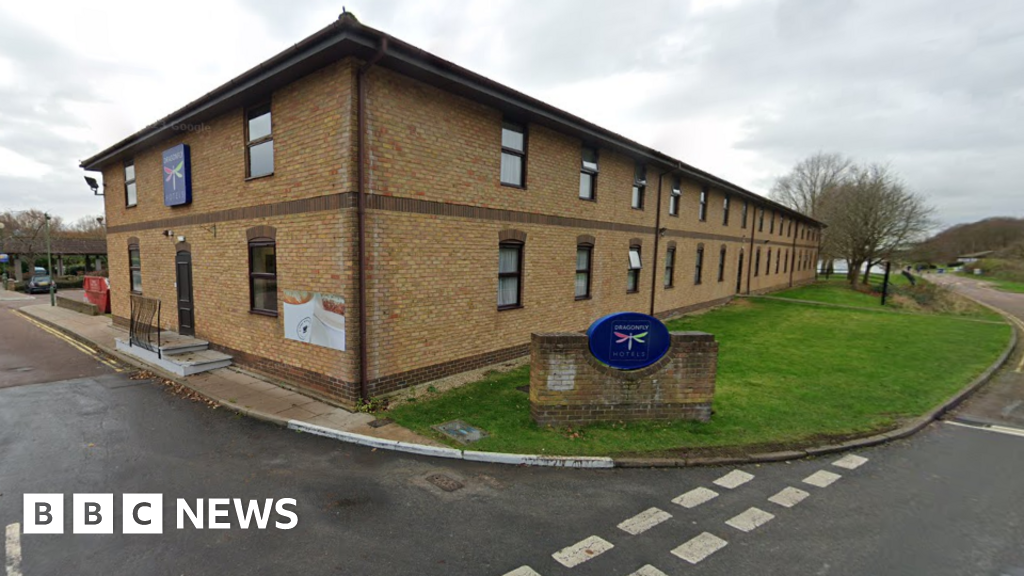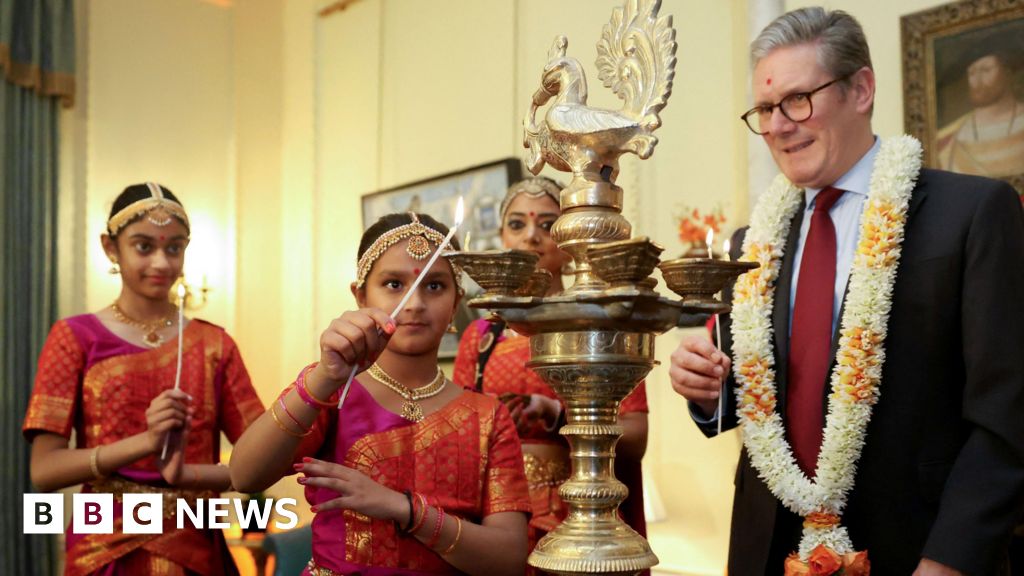ARTICLE AD BOX
Image source, Netflix
Image caption,Netflix hits such as Bridgerton would be subject to Ofcom regulations, bringing them into line with public service broadcasters
Streaming services are set to be regulated by Ofcom for the first time, under new government proposals.
Netflix, Disney+, Amazon Prime Video and other streamers will be given new rules that will bring them in line with traditional broadcasters.
The culture secretary said the move would protect audiences from harmful material.
The government also reiterated its intention to proceed with the privatisation of Channel 4.
The broadcasting reforms have been set out in a White Paper - a policy document - by the Department for Culture, Media and Sport (DCMS).
It says they are intended to create a "new golden age" of British TV and "help the nation's public service broadcasters thrive".
Culture Secretary Nadine Dorries said: "The UK's TV and radio industries are world-renowned for their creativity, driven by exceptional talent that is delivering groundbreaking public service programming.
"Set against the backdrop of the digital transformation of our viewing habits, today's plans will revamp decades-old laws to help our public service broadcasters compete in the internet age."
Streaming regulations
While linear TV channels must currently abide by Ofcom rules, most Video on Demand (VoD) services are not currently subject to the regulator's Broadcasting Code.
The changes put forward would oblige VoDs to protect audiences from harmful or offensive material, and adhere to rules regarding accuracy, fairness and privacy.
The move will be welcomed by public service broadcasters (PSBs), who have been lobbying for streaming services to face the same regulations as them for several years.
Image source, Mike Blake
Image caption,Streaming services such as Netflix could now face similar regulation to public service broadcasters
The government said the new rules will primarily affect "TV-like" VoD services such as Netflix, ITV Hub and Now, and would "level the playing field".
Currently, the BBC iPlayer is the only VoD service which has to abide by Ofcom's Broadcasting Code.
But the proposals mean Ofcom would have the powers to draft and enforce a new VoD Code, to ensure that all streamers are subject to stricter rules.
The government said the maximum fine for regulated VoD services which break the rules will be £250,000, or an amount up to 5% of an organisation's revenue, whichever is higher.
Channel 4 privatisation
Image source, Channel 4
Image caption,It's A Sin, set during the 1980s Aids crisis, is one of Channel 4's biggest hits of recent years
The government's intention to privatise Channel 4, which is currently publicly owned but commercially funded, is also set out in the White Paper.
It says a "change of ownership in Channel 4 will give it the tools it needs to succeed in the future as a public service broadcaster while protecting its distinctiveness".
But the proposals have been unpopular with Channel 4, which said earlier this month it was disappointed with the plans.
Chief executive Alex Mahon said there was no evidence that privatisation would benefit the channel.
Labour is also against the move, with shadow culture secretary Lucy Powell telling the Commons: "Nothing screams rudderless government like fixating on the governance of Channel 4 while people's energy bills are going through the roof. Why sell off Channel 4, and why now?"
Ms Powell added the privatisation of Channel 4 "will mean fewer British-made programmes for British audiences and fewer British jobs".
However, the government argues that Channel 4 is facing unprecedented competition for viewers.
It says it has consulted on the best way to ensure the channel's future success and sustainability, and believes this is the time to pursue a change of ownership.
Image source, PA Media
Image caption,Culture Secretary Nadine Dorries said the White Paper would "usher in a new golden age for British TV and radio"
The government also plans to bring in legislation to ensure public service broadcasters' content is given prominence on connected devices and major online platforms, including smart TVs and set-top boxes. That includes services like BBC iPlayer, ITV Hub, All 4 and My 5.
The first five linear channels the public find when switching on their televisions are PSBs, the White Paper notes, because these slots are reserved in electronic programme guides on TV sets, including on platforms such as Sky and Virgin Media.
However, the government acknowledged PSBs have been finding it increasingly difficult to secure their presence and maintain their prominence on newer and global platforms, something the new rules would address.
Sporting rights
Image source, EPA
Image caption,The BBC was limited to only two live streams at the Tokyo Olympics because of rights restrictions
Plans to change the digital broadcast rights for major sporting events such as the Olympic Games, men's World Cup finals, men's FA Cup final, Grand National and Wimbledon singles finals, are also set out.
Current broadcasting rules state that events of national interest should be available to view live, and for free, by the widest possible audience. As a result, broadcasters such as the BBC, ITV and Channel 4 currently air most major sporting events.
However, digital rights are not covered by the current legislation, known as the listed events regime. That means PSBs can broadcast events live, but do not always have the catch-up rights.
The Paper says that if, for example, the Olympic men's 100m final took place overnight and a different broadcaster owned the catch-up rights, a wide audience may miss out on watching it for free.
The proposals will strengthen the position of PSBs at a time when many are struggling to keep some of their biggest sporting events.
Last year, viewers complained that BBC coverage of the Tokyo Olympics was less than in previous years, after the International Olympic Committee (IOC) struck a deal with US broadcast giant Discovery.
How has the industry reacted?
An Ofcom spokesman told BBC News: "We're pleased to see the government taking forward many of our recommendations, particularly around securing prominence for on-demand public service content. We will continue to offer support with the development of future legislation."
In a statement, ITV said: "We will engage carefully with the substance of the White Paper once it is published, but many of its proposals - notably reform to prominence and inclusion rules, a more flexible approach to remits, and changes to the listed events regime - look very sensible."
Channel 4 said it "will study the White Paper issued by DCMS, and a considered response will follow".
It added: "However, Channel 4 remains committed to upholding and maximising its remit and public service purpose that has enabled it to shape Britain's creative culture and make a significant contribution to the creative industries."
Netflix and the BBC have been asked for comments.

 2 years ago
40
2 years ago
40








 English (US)
English (US)